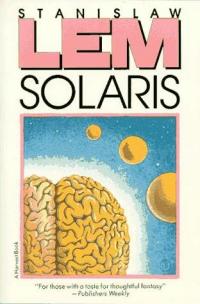 A blog post by Linda Nagata, reflecting on a “tired old meme” about hard SF, has got me wondering when we will finally upgrade our thinking about science fiction.
A blog post by Linda Nagata, reflecting on a “tired old meme” about hard SF, has got me wondering when we will finally upgrade our thinking about science fiction.
She is responding to an old piece by Damien Walter in The Guardian, which begins: “Despite protestations to the contrary, hard SF is a boys’ club that is undermining its own potential by resisting the contributions of women writers.”
It adds: “Women writers are more than welcome in hard SF, assuming they have a background in the hard sciences and value hard logic to the exclusion of all emotional experience.”
Nagata goes on to point out there’s a “tired old meme that says hard SF is emotionless writing,” which Walter, who is railing against emotionless writing, is taking to be true.
Well, Ms. Nagata is right to resist the idea that hard SF is emotionless.
I wouldn’t be desperately trying, in my middle age, to break into SF today were it not for hard SF works hooking me in adolescence with their deep emotion.
Reading Arthur C. Clarke’s Childhood’s End was a life-changing experience for me back then, because of the wonder evoked by the cosmic visions experienced by young Jeffrey Greggson. Rereading it decades later as an adult and a parent, I was moved again by the deep sadness experienced by Jeffrey’s parents and the last generation of ordinary humans. A transformation of cosmic significance is taking place, yet Clarke poignantly evokes that very particular, individual human sadness.
The archetypal emotionless hard-SF writer is another giant in the field: Stanislaw Lem. Most of the time, even after one factors out the asymmetries of translation from the Polish, his characters are empty vessels meant to advance ideas. They often disappear for pages to make room for mini-theses.
And yet, one of the most poignantly emotional moments in hard SF has to be the ending of Solaris, in which Kelvin struggles with the pointlessness of human existence and descends to the planet’s surface in the hope that “the time of cruel miracles was not past.”
(The poignancy of this ending even survived, in my impoverished North American experience, the vagaries of double translation. The only English edition available at the time – and perhaps still today – was translated from Polish to French first.)
It is true the delineations between hard and soft SF once had everything to do with the New Wave generation embracing the kinds of literary techniques that seemed foreign, if not utterly irrelevant, to their elder pioneers in the field. I am not sure if Lem ever read, or opined about, Samuel R. Delany’s Dhalgren, but I could only imagine the universal sound of a book hitting a wall somewhere in Krakow.
When I studied science fiction as an English Lit undergrad, I thoroughly appreciated and enjoyed both Dhalgren and Solaris, and saw no contradiction in this.
I also became – and remain to this day – an admirer of Ursula K. LeGuin’s Ekumen series. Yet I recall, back in those undergrad days, describing both Lem and LeGuin as equally great, and being challenged by a hardcore Lem exponent who believed LeGuin should never be mentioned in the same sentence as the Polish master.
What followed sounded very much like what Damien Walter rails against, an argument that hard SF should be about philosophical treatises, not character development or emotion. (And, by the way, in this student’s view women were definitely not welcome.)
I recall our professor at the time clarifying that Lem and LeGuin “liked each other very much.”
Sadly, it would seem that, decades later, there are still those who consider The Left Hand of Darkness and His Master’s Voice to be mutually exclusive.
Could the whole hard-versus-soft thing be at least partly to blame here? Maybe an X-Y graph, with the hard sciences on one horizontal end, social sciences on the other, philosophical treatise at one vertical end and literary work on the other, might be more useful?
Clearly, if we rewrite our definitions of the genre in a way that lets readers appreciate Lem and LeGuin, Clarke and Delany, together, for their different qualities, we will be doing all of SF a favour. At the same time, perhaps, we’ll be eliminating gender divides that have no place in a forward-thinking genre.
UPDATE: After further reflection and Twitter discussion, I've tried to come at the problem from yet another angle here.